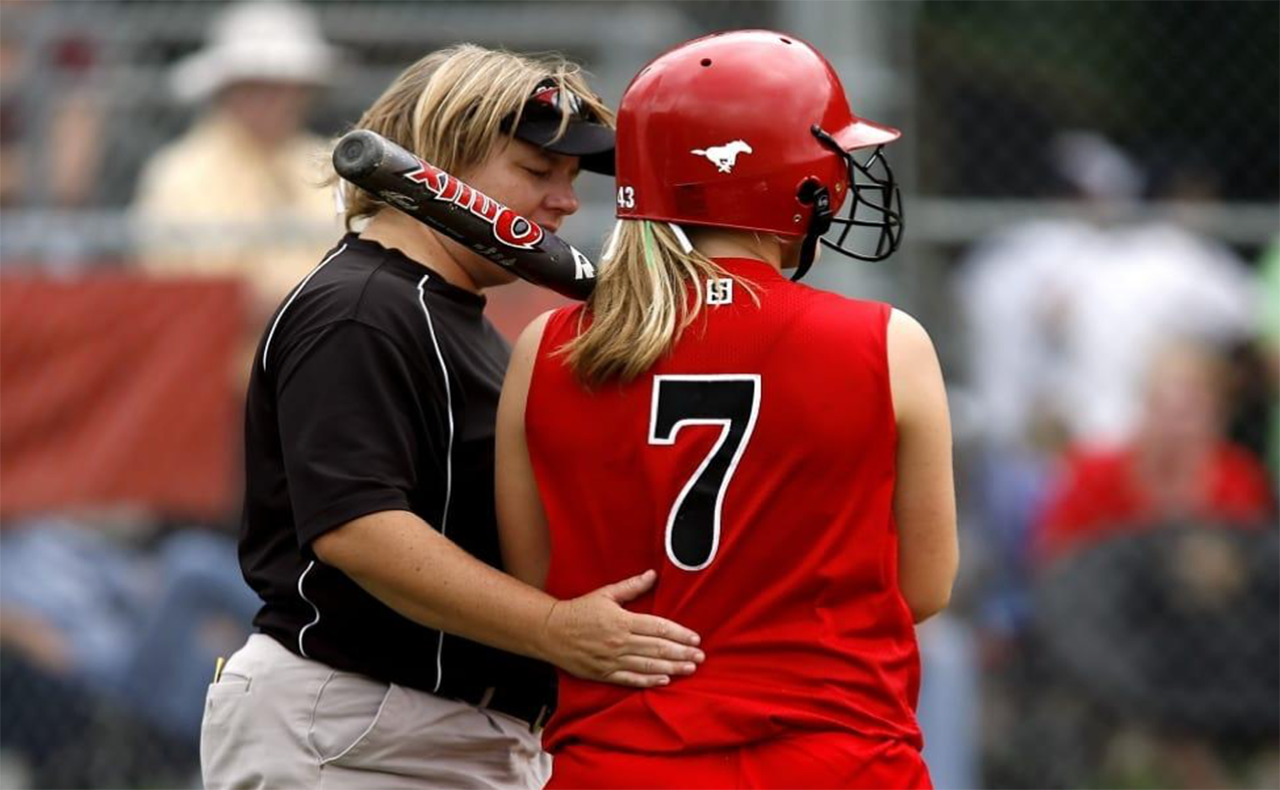Using Coaching Knowledge to Improve Support for Injured Athletes

Published
Injury is an element of athletics that athletes experience. Social support from coaches can be an instrumental component of the recovery experience for athletes (Podlog & Dionigi, 2010). For instance, coaches can improve injured athletes’ recovery experience by using social support strategies like goal-setting and cognitive reframing. Coaches spend many years developing context specific coaching knowledge that guides them in their work with athletes. The International Sport Coaching Framework highlights three knowledge types (professional, interpersonal, and intrapersonal knowledge) that are used by effective coaches to promote the athlete outcomes of confidence, competence, character and connection.
- Professional knowledge is the declarative and procedural knowledge coaches use in their pedagogical strategies.
- Interpersonal knowledge refers to behaviors and skills coaches use when interacting with athletes.
- Intrapersonal knowledge is coaches’ use of reflection for evaluation of both themselves and their athletes.
How can coaches use this information to help injured athletes?
The injury experience can be improved for athletes if coaches contribute positively throughout the recovery period. Many coaches already have excellent skills that have a positive impact on their athletes’ recovery, but some struggle or do not know where to turn for assistance. There are several ways coaches can practically apply the three knowledge types of effective coaches when supporting injured athletes.
Practical Applications
Professional Knowledge
- Coaches can educate athletes about their injury. Coaches are not expected to have the same knowledge as athletic trainers or physicians, but they have had experience with many injuries in the past. Coaches can share what their experiences have been with a given injury to provide more information to injured athletes.
- Provide injured athletes with resources and referrals to individuals who can provide additional support. These individuals could be sport psychology practitioners such as a Certified Mental Performance Consultant® (CMPC), mental health practitioners, or other athletes who have experienced a successful return to competition after sustaining a similar injury.
- Use informational support strategies like goal-setting and creating task challenges. When asking athletes to set goals, make sure they include goals beyond their sport to help them broaden their identity outside of sport. Helping athletes set goals both in and out of sport can help coaches learn more about their athletes beyond what they see in practice and competition.
Interpersonal Knowledge
- Giving emotional support to injured athletes is an excellent use of interpersonal knowledge. An important aspect of providing emotional support is to listen without judgment or preconceptions. When coaches can listen to their injured athletes in this way, they are demonstrating that they are invested in supporting injured athletes through the recovery process.
- Coaches should ask for feedback from injured athletes about what is and is not helpful during rehabilitation to ensure the best outcomes for the injured athletes.
- Athletes may be afraid to share honestly with their coaches and thus it is important for coaches to create a culture of transparency that offers support over criticism. This culture of transparency should encompass athletes’ overall experience playing for their coaches, not just when they are recovering from injury.
Intrapersonal Knowledge
- A simple step coaches can take to improving outcomes for their injured athletes is to reflect on the culture and climate that currently exists in their teams. Coaches can reflect on ways they can improve their approach to injury as well when they have used their interpersonal knowledge to gather feedback about their coaching.
- Coaches should reflect on their own experiences as injured athletes. Engaging in reflection about their own experiences can provide coaches with information about how it felt to be treated in a particular way. Many coaches reflect on their time as an athlete and use this to inform their current coaching practices.
Conclusion
When athletes are injured, coaches should continue communicating with injured athletes because injury can be a very isolating experience for athletes. Being injured means being away from their sport and the camaraderie of their teammates, which may have quite a negative impact on athletes psychologically. If coaches are able to implement the strategies provided here in conjunction with keeping the athletes connected to the team in some capacity (e.g., giving them tasks to do at practice like setting up drills), the experiences and outcomes for injured athletes are likely to improve.
References
Côté, J., & Gilbert, W. (2009). An integrative definition of coaching effectiveness and expertise. International Journal of Sport Science and Coaching, 4(3), 307-323.
International Council of Coaching Excellence [ICCE], Association of Summer Olympic International Federations [ASOIF], & Leeds Metropolitan University [LMU] (2014). International Coach Developer Framework (Version 1.1). Human Kinetics.
Maurice, S., Kuklick, C. R., & Anderson, M. (2017). Providing social support to injured athletes: Applications of the international sport coaching framework. International Journal of Physical Education, Sports and Health, 4(5C), 166-175.
Maurice, S., Voelker, D., Kuklick, C., & Byrd, M. (in review). “We don’t always get it right”: Coaches’ perspectives on supporting injured athletes. Sports Coaching Review.
Podlog, L., & Dionigi, R. (2010). Coach strategies for addressing psychosocial challenges during the return to sport from injury. Journal of Sport Sciences, 28(11), 1197-1208.
Share this article:
Published in:





